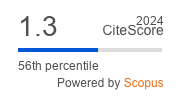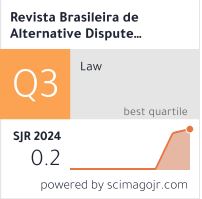Proposta de Articulado de Lei da Arbitragem Administrativa Voluntária (Portugal)
Keywords:
Alternative Means of Dispute Resolution, Administrative Arbitration, Administrative Arbitration Courts, Arbitration Process, Pre-contractual Arbitration, Arbitration CentresAbstract
In the Portuguese legal system, administrative arbitration has gained increasing importance, which is mostly a consequence of the changes introduced in this matter in 2015 by the Code of Procedure in the Administrative Courts, and in 2017 by the Public Contracts Code, which raised (and currently still raises) a wide range of issues. These (innovative) amendments have not been free of criticism: on the one hand, they have solved several problems which, in due course and in the past, have arisen; on the other, they have raised new interpretative questions which are difficult and dubious to solve. It is in this context that the present proposal arose, as a project for a possible “Voluntary Administrative Arbitration Law”. Sticking to this alternative means of dispute resolution, this proposal presents, in articles, some possible solutions to the problems already discussed. Thus, and in summary, it changes the range of disputes that may be settled by administrative arbitral courts; establishes a set of core principles that should govern administrative arbitration; establishes rules for the constitution and functioning of administrative arbitration courts, mandatorily referring some disputes to administrative arbitration centres; provides for requirements for the appointment of arbitrators, their duties and rules regarding impediments, dismissal and refusal of arbitrators; addresses the (difficult) issue of the interested parties, presenting solutions for the appointment of arbitrators in this context; includes specific rules for legal representation in administrative arbitral courts; establishes rules that the arbitration process must observe in relation to the place of arbitration, applicable law, grounds and publicity of decisions and proceedings; regulates the intervention of the Public Prosecutor’s Office in administrative arbitration courts; introduces a different legal framework for pre-contractual arbitration; develops and systematizes the means of challenging the arbitration decision (appeal and annulment action); and also includes brief rules on arbitration centres. In short, not only does this proposal aim to contribute to the debate on these problems, but it also presents, from the outset, some solutions for their resolution.
Downloads
Published
Issue
Section
License
No royalties or other compensation shall be due for the publication of the works.
The opinions expressed by the authors of the articles and reviews are their sole responsibility.









